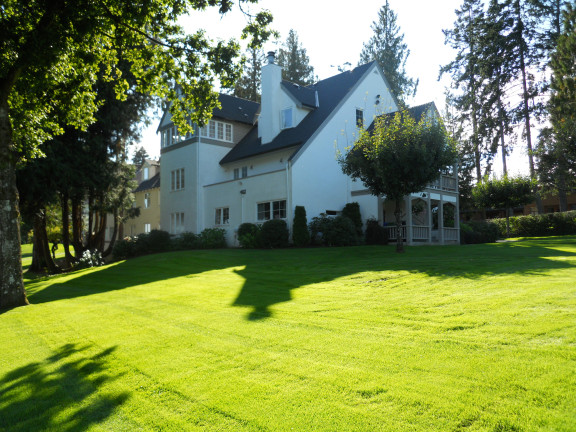50p

Top 10 List When Looking for a Boarding School
I have worked at a boarding school for 17 years. I have lived with my family on campus all 17 years. I have been a coach, a teacher, an administrator and a parent at a boarding school. I have visited boarding schools around the world; some impressive and some not so impressive. Obviously I have a bias toward my own school but I always try to give candid advice to families looking for the best boarding school fit. For what it is worth, here is a kind of Top 10 list:
1. Compare! Make sure it isn’t the only school you are looking at. Do your homework. Have a list of questions and demand more than a one word answer; force the Admissions staff to be real about their school. Narrow down what you are looking for in a school and then ensure that you get satisfying answers from each school. The openness and honesty of the responses can go a long way to helping your family make the right decision.
2. Is it a ‘boarding school’ or a ‘school with boarding’? If you are looking for a boarding school experience, you better make sure the school is primarily a ‘boarding school’; get the numbers. This may seem obvious but the experience the students will have in a school where the majority of students are boarders will be vastly different than the experience in school where a larger group of students leave to go home each day. It is better to be part of ‘the’ community, not simply ‘a’ community.
3. Demographics. Where is the boarding community from? Find out the boarding demographics not just the ‘whole’ school statistics. Why is this important? If you are, for example, coming to a Canadian or American boarding school from Timbuktu and the majority of the boarding population are from Timbuktu, is this going to be the experience you were looking for? Again, this may sound obvious but many schools have a predominantly international boarding population – some mostly from one or two regions. For the best experience, make sure that the boarding population is balanced in a way that you prefer. It is all about preference so find out the real numbers so you can make an educated choice (no pun intended).
4. Mentoring. Are the adults in charge of running the houses living there full time? Are they teachers at the school – involved with all aspects of the student’s life? Make sure that the experience that students will have in the residences is going to be a continuum of the expectations and values that is expected during the rest of the day. Dig deep, speak to students and ask to speak to parents if possible. There may be no more important element in choosing a school. The quality of the boarding culture must be the standard by which all else is judged.
5. Safety. Is there a strong residential life programme? Ask for it to be defined. Is the house team trained in issues of safety and do they have basic first aid training? Are the houses alarmed at night? Is there boarding-specific education offered outside of the classroom? What are the disciplinary actions taken should students violate dorm and school rules? Speak to the school nurse and/or doctor and counselor about their scheduled and unscheduled approach to the overall physical and emotional health of the student body.
6. Atmosphere. Choosing a school is ultimately all about the perceived fit. We call it ‘curb appeal’. You feel something when you drive in as you first arrive. It is the way the other students interact with each other and with the staff. It is about the tone, the atmosphere, the ‘spidey sense’ you get. It seems real and genuine.
7. Good, bad and ugly. Ask to see the oldest parts of the school, especially the oldest dormitory building (these aren’t always a part of the ‘official tour’). Odds are your child will also spend time in these places so make sure you see what they are like. Don’t fall for the sugar-coated tour. Get down and dirty! Open doors to rooms yourself, not just the ones opened for you. Ask to go down the ‘left’ corridor when they only want to show you the one on the ‘right’! You get my point…
8. Overnight. Can prospective students have an overnight experience? If you are unsure about a school, overnights can be very valuable though they don’t always tell you everything. There are always good days and bad days on a campus but it will allow the students to ask the real questions without adults present. It can also give prospective students a sense of the daily routine. Ask to sit in on some classes and watch a team practice.
9. Ask around. Get out into the community and see ‘what the neighbors have heard’. Avoid gossip but getting out into the local area and asking around should give you a ‘feel’ for the general impression of the school and of its students. Ask the school if you can speak to current and past families. Visit the school ‘after hours’, once the formal tour is done or even before hand. Sit in your car or, if possible, walk around and watch how students interact, dress and behave. This can tell you a great deal.
10. Re-Visit. Always a good idea if at all possible bearing in mind (like with the overnight) there will always be good days and bad days at a school. Come up with some new questions. Re-ask old questions and see if the answers are the same! Re-visit after you have visited other schools and see how it still resonates with you. If it was sunny on your first visit, maybe drop in on a rainy day and see how it still feels!